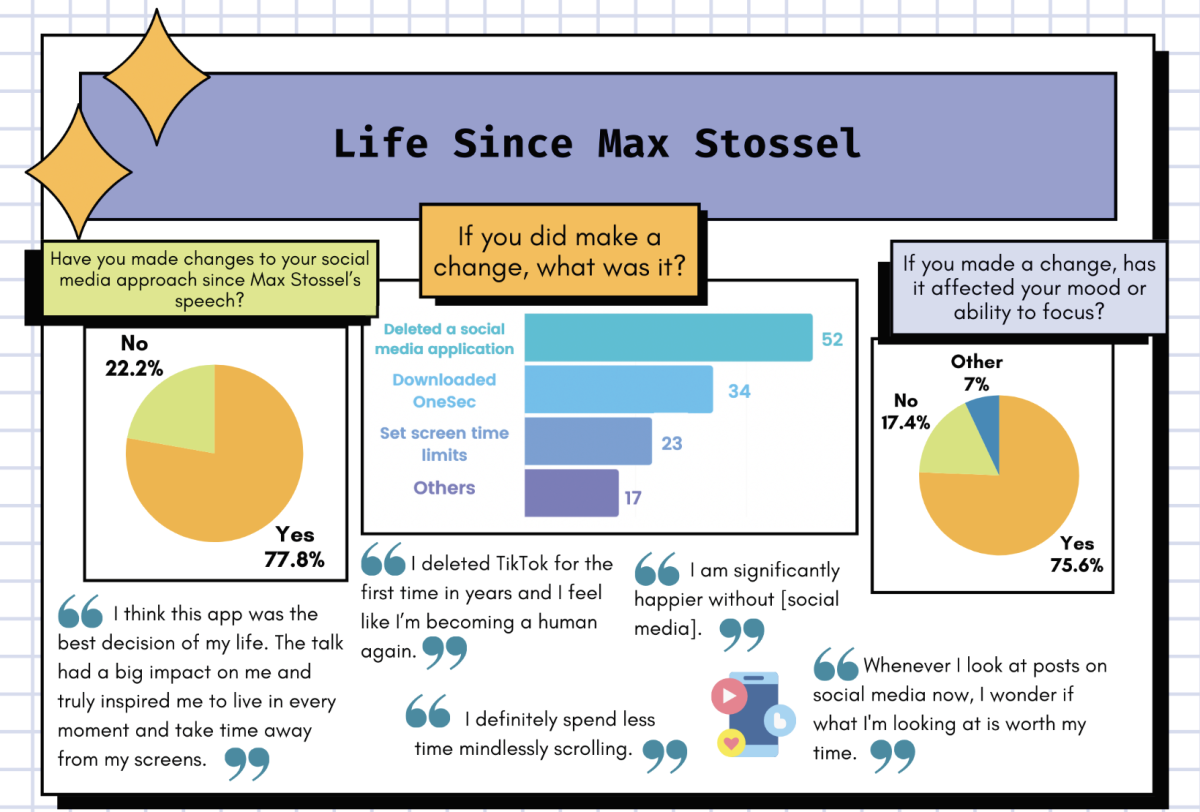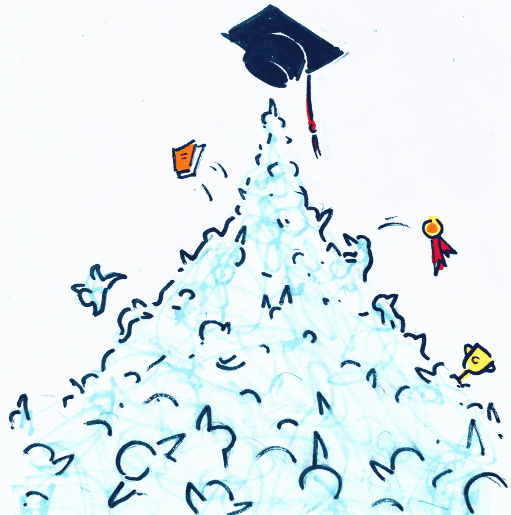Heading into 2024, many students created New Year’s resolutions: maintaining a better sleep schedule, ordering less Mizza’s, or asking that special someone to a dance. One of the most popular, yet often unfulfilled, resolutions among students is limiting screen time.
The administration has made it a priority to support student well-being during this school year. The most notable efforts have been granting homework-free days, implementing the new phone policy, creating the student wellness council, and inviting a variety of wellness speakers.
In September, Dr. Tal Ben-Shahar, a professor who teaches one of Harvard’s most popular courses, the “Happiness Course,” came to the school to share approaches to supporting happiness.
On January 9, the community welcomed Max Stossel, the founder of Social Awakening, a program that helps people better understand and use social media.
In his speech, Stossel shared tactics that social media companies use to capture users’ attention, revealing that apps like Instagram design their platform specifically to keep users hooked. He reminded students that the apps have no incentive to promote user well-being. When people turn to social media for a quick laugh or mood boost, they end up trapped by the algorithms, and spend more time on the platform than they intended.
He revealed that many media platforms and games utilize the same reward structure that make slot machines so addictive; the process of “scrolling” keeps a user constantly chasing the dopamine hit that comes with suddenly seeing something funny or important in a mass of irrelevant content. It is this unexpected validation, after failing to receive it so many times, that is so addictive.
A number of students deleted social media platforms during Stossel’s speech. However, the most important question about the speech stands: have students made lasting changes to their interactions with social media after his call-to-action? The answer to this question might be yes for the hours and days after the lecture. However, what would it be after two weeks?
The overall consensus is that student mindfulness of their social media usage has increased, proving the impact of Stossel’s speech. In a survey sent to the community by The Record, of 126 respondents, 78% reported making a lasting change to their social media use since Stossel’s speech. Fifty-six percent of those students said they had deleted a social media app.
Some students have set screen time limits, or took Stossel’s recommendation of downloading OneSec, an app that prompts users to pause before they are able to open a social media app.
Some students have tried Stossel’s method of training the algorithm by only clicking and liking content they enjoy and want to see more of.
An anonymous survey respondent said, “Whenever I look at posts on social media now, I wonder if what I’m looking at is worth my time, which has definitely been beneficial. I’ve stopped using Snapchat as many times during the day, and even ended some streaks that didn’t actually make me happy. Overall, I feel like I spent more time with friends in real life and am helping myself live better.”
Some students have expressed that the guilt they experience while scrolling has diminished since they learned why it is so challenging to resist engaging with apps. Mrs. Carrie Smith, director of student wellness, said, “Many times, we assume kids are conscientiously making the choice to keep scrolling. Stossel’s speech invoked more empathy among the staff for students using social media. Students have told me they appreciated that Stoseel wasn’t an older adult wagging their finger, but a younger person who worked in the industry giving them the inside scoop and educating them so they can make better decisions for themselves.”
Stossel’s advice followed the positive tone of Dr. Tal Ben-Shahar’s address to the community on happiness and reflects a pattern chosen by the club.
“Wellness speakers have a tendency to talk about wellness problems like illness and addiction,” said Mrs. Smith. “But the two we’ve had this year have been encouraging—looking at potential and promise, rather than problems.”






